by ASJAD NAZIR
JANHVI KAPOOR TALKS ABOUT HER DEBUT FILM DHADAK AND LATE GREAT MUM SRIDEVI
The one word that perhaps describes Janhvi Kapoor best would be brave.
She first showed immense courage to follow in the giant footsteps of her legendary mother Sridevi by pursuing an acting career, and then worked hard to take on the challenging role in her debut film Dhadak.
Earlier this year, she won hearts globally with the bravery she showed after her mother tragically passed away, and found inner-strength to complete her first movie.
That strong will has no doubt been inherited from her mother, who was a symbol of girl power across different decades, and has been evident in the popular promos of Dhadak.
The remake of South Indian film Sairat sees her playing an upper-class girl who falls in love with a guy from a lower social strata. Despite the eyes of the world being on her, the softly-spoken actress was calm and brimming with confidence when Eastern Eye caught up with her to speak about Dhadak, acting, inspirations and more...
You grew up surrounded by cinema, but was acting something you always wanted to pursue?
I didn’t have a masterplan actually, but I have always been involved with films and been very passionate about cinema. So I knew that I wanted to do something creative and movies is the only thing that I knew ever since I was a kid. So deep down I knew this was what I wanted to do.
Did the fact you were following in the footsteps of a legend like your mother Sridevi ever come into your mind?
My mum was more afraid than I was because I think I was too naive and idealistic to think about that this is something I should be worried about. I was just thinking about approaching my character with honesty and sincerity, and I think I have tried to do that.
But every since I started promoting the film and so many people have started asking me about the pressures and expectations and how I’ve been dealing with it that, I have started thinking about it now.
Sorry about that…
It’s okay Asjad! It is just that I never really thought I need to act like her or try not to act like her. It was confined to giving my work and my character my best. I never understood the debate, especially since she had done more than 400 films and this is my first.
Was producer Karan Johar tough with you during the audition process for your first film?
He wasn’t harsh with me! I think he was just trying to understand me and the kind of things I am capable of doing. We were doing readings every other day for a few months. He would throw different types of scenes at me and I would have to read them.
Then very impromptu, he would ask me to do it with different emotions, sometimes happy, other times casual or a little disinterested or with intensity. So it was actually fun and I would wait every week for when I could come in and do these readings with Karan.
Tell us about your character because she seems like a girl that every guy has met at some point in his life...
(Laughs) Really? What do you mean by that?
Every guy has met a girl who is intimidating and makes him work hard to win her affections. That is what your character does in the trailer...
(Laughs) Yes, I do think she is kind of like that. She is a little frightening and has got an air about her. She doesn’t like to give in too easily. But I think it comes from a place of innocence and it also has a lot to do with her upbringing.
She has a royal lineage and her father is a politician, so I think she is kind of, I don’t wanna say spoilt, but is used to getting her way. So she likes to boss people around, but is a very childish and a very strong-willed girl. When I was approaching the character, I actually saw a lot of my sister in her.
You seem to be a natural, but what was the biggest challenge of playing the role? Was it the accent?
So I went with my director (Shashank Khaitan) to places like Udaipur and Jaipur where the film is set. He had me interacting with locals over there. I got to understand a lot about their culture and the certain amount of pride they had. They are very obvious in the tonality of the way that they speak and their phonetics are very different.
So we got ourselves familiarised with that. My director is from that region so he knew that language. We sat in with him for readings and just tried working on that as much as possible – reading the scripts again and again. We expanded on that energy! I even met people of that region on my own as well to make sure I was on the right track.
What is your favourite moment in the movie?
My favourite moment is actually a sequence in the second half, just because while filming it Ishaan (Khatter) and I both got really emotionally involved. It was a very interesting experience as an actor because it is always a lot of fun when you create a very honest moment in front of the camera.
It feels euphoric almost. We had a lot of those moments, but this one really stood out in particular because I felt something with my character that I don’t think I have ever experienced in my life and hopefully I never will, but it felt very real.
This film is a romance, but are you a romantic in real life?
(Smiles) I think so, definitely I am a really romantic person. I like to romance everything in life.
Going forward, have you made a plan of the types of roles you want to do?
Honestly, all of my energies are focused on Dhadak. I want the audience to accept me first and to think I am worthy of doing something else after this. Then maybe I can make a plan. So right now, nothing is planned.
You are passionate about cinema, but what films do you like to watch as an audience member?
I like all kinds of films. I really think that watching films has helped shape my moral compass. So I just like global cinema. I think that it’s important to have a strong foundation, know where you come from, and to know about cinema history.
It is also very interesting to know how different filmmakers from the past, present and around the world tackle different subject matters. There was a certain charm in old world cinema especially, and it can help you learn a lot.
You have an extraordinary background and will take your first steps towards hopefully a long career with Dhadak. What inspires you?
I think real life inspires me, observing people and my love for cinema. The craft inspires me with its ability to touch people’s lives. The ability to grow from it as an artist!
Growing from being an actor and living the lives of all your characters inspires me a lot because I think it helps you understand human nature and yourself. Cinema is just a beautiful medium.
- Dhadak is in cinemas now





 Lunchbox is a powerful one-woman show that tackles themes of identity, race, bullying and belongingInstagram/ lubnakerr
Lunchbox is a powerful one-woman show that tackles themes of identity, race, bullying and belongingInstagram/ lubnakerr She says, ''do not assume you know what is going on in people’s lives behind closed doors''Instagram/ lubnakerr
She says, ''do not assume you know what is going on in people’s lives behind closed doors''Instagram/ lubnakerr








 He says "immigrants are the lifeblood of this country"Instagram/ itsmetawseef
He says "immigrants are the lifeblood of this country"Instagram/ itsmetawseef This book is, in a way, a love letter to how they raised meInstagram/ itsmetawseef
This book is, in a way, a love letter to how they raised meInstagram/ itsmetawseef
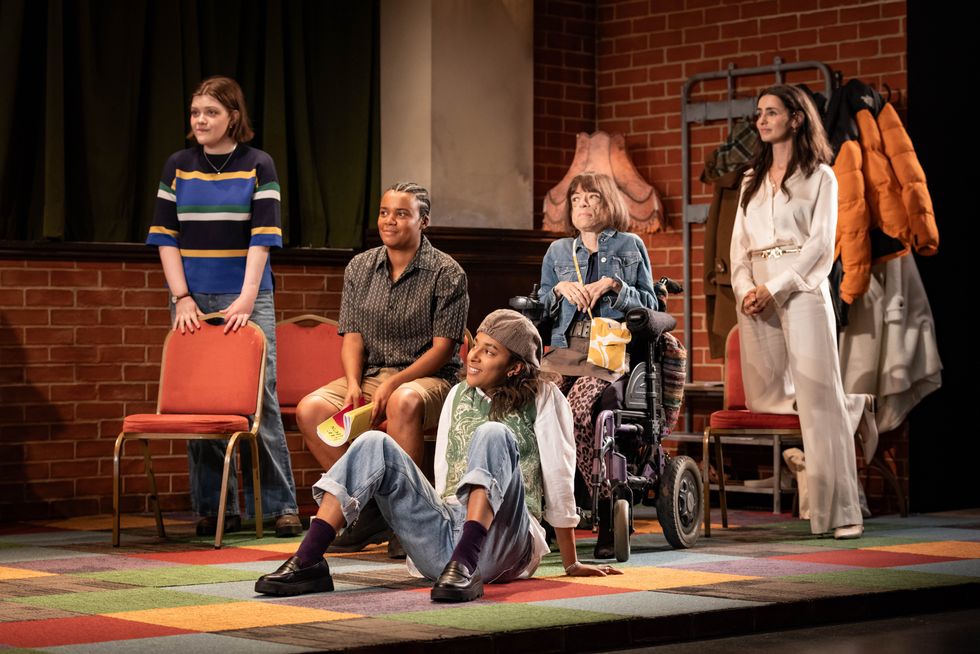 The crew of The Ministry of Lesbian Affairs
The crew of The Ministry of Lesbian Affairs
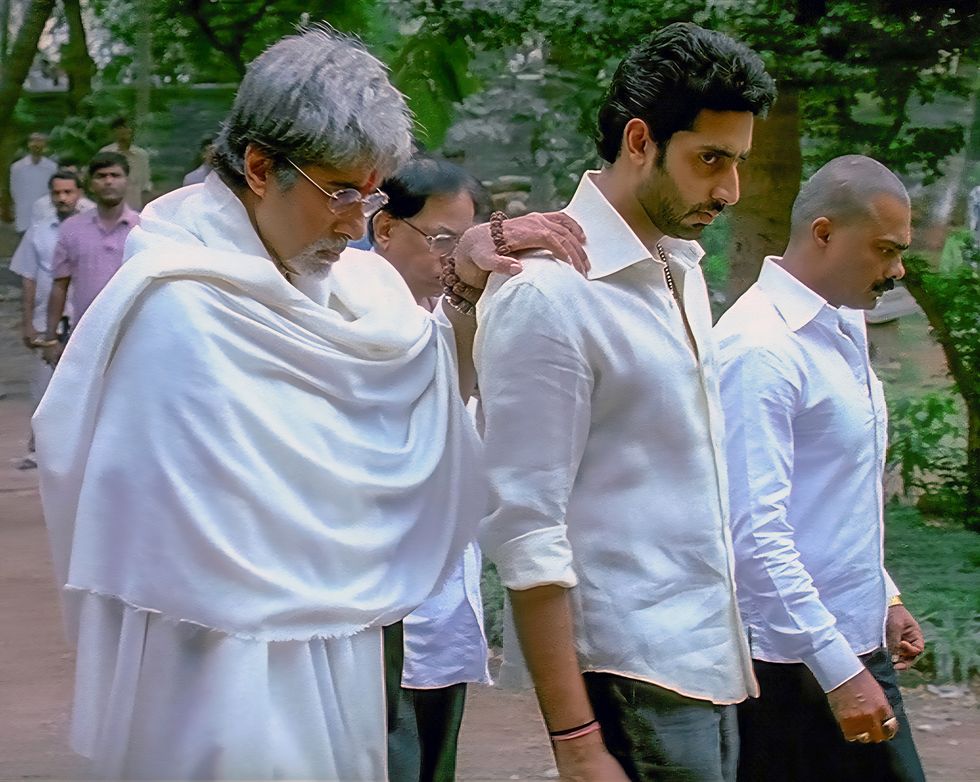 A still from Sarkar, inspired by 'The Godfather' and rooted in Indian politicsIndia Glitz
A still from Sarkar, inspired by 'The Godfather' and rooted in Indian politicsIndia Glitz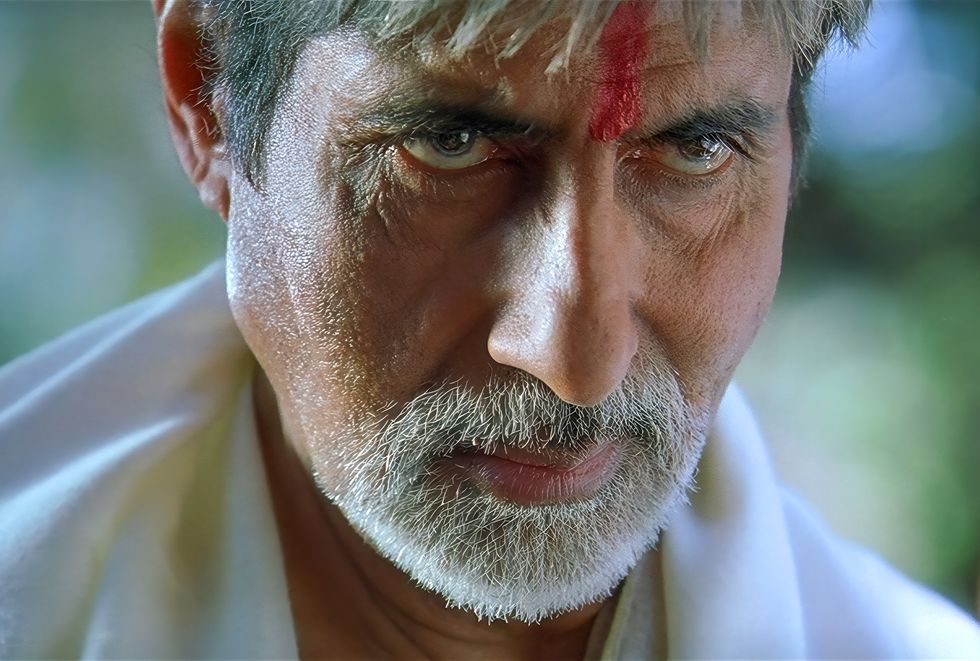 Sarkar became a landmark gangster film in Indian cinemaIndia Glitz
Sarkar became a landmark gangster film in Indian cinemaIndia Glitz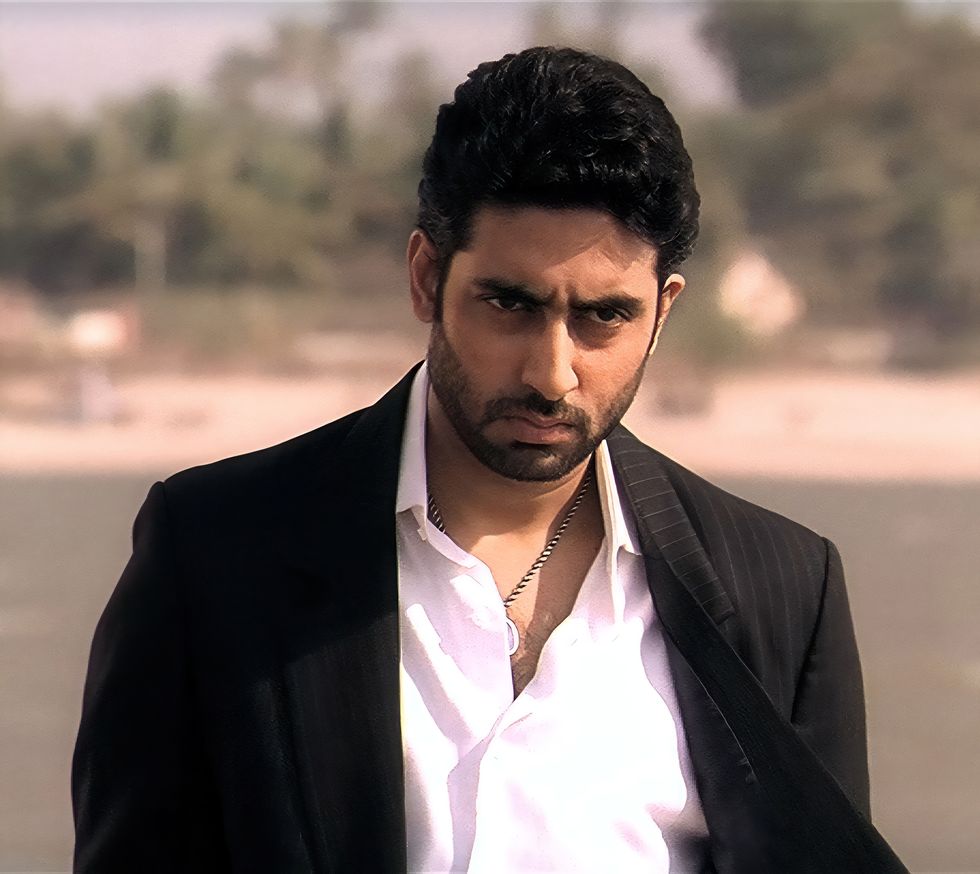 The film introduced a uniquely Indian take on the mafia genreRotten Tomatoes
The film introduced a uniquely Indian take on the mafia genreRotten Tomatoes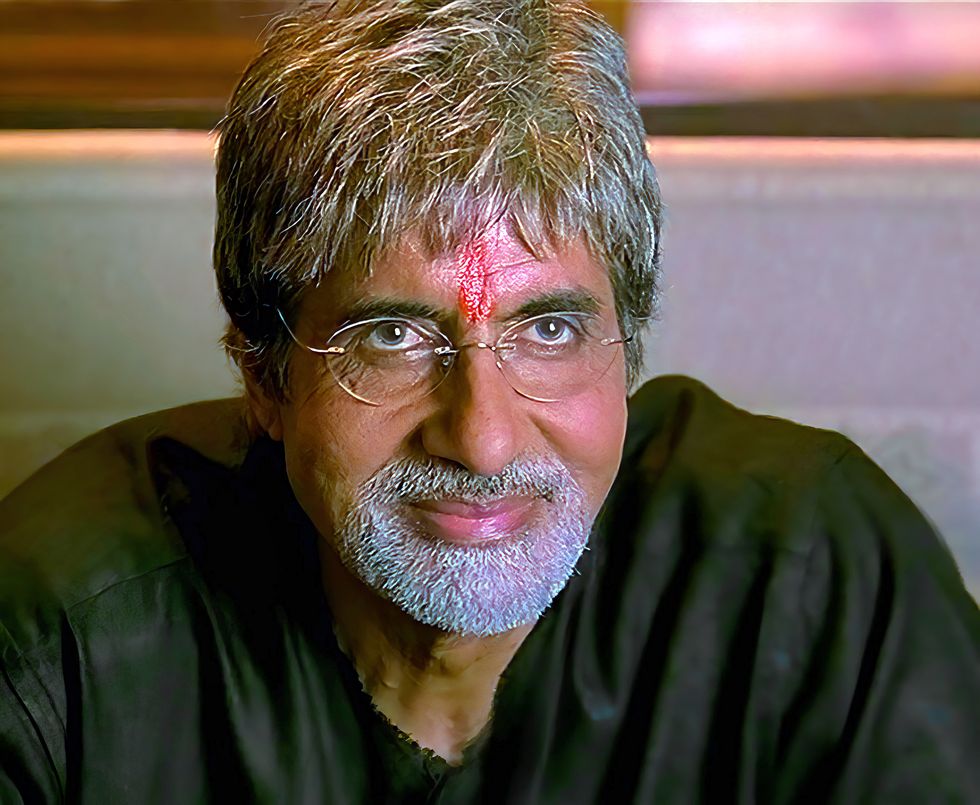 Set in Mumbai, Sarkar portrayed the dark world of parallel justiceRotten Tomatoes
Set in Mumbai, Sarkar portrayed the dark world of parallel justiceRotten Tomatoes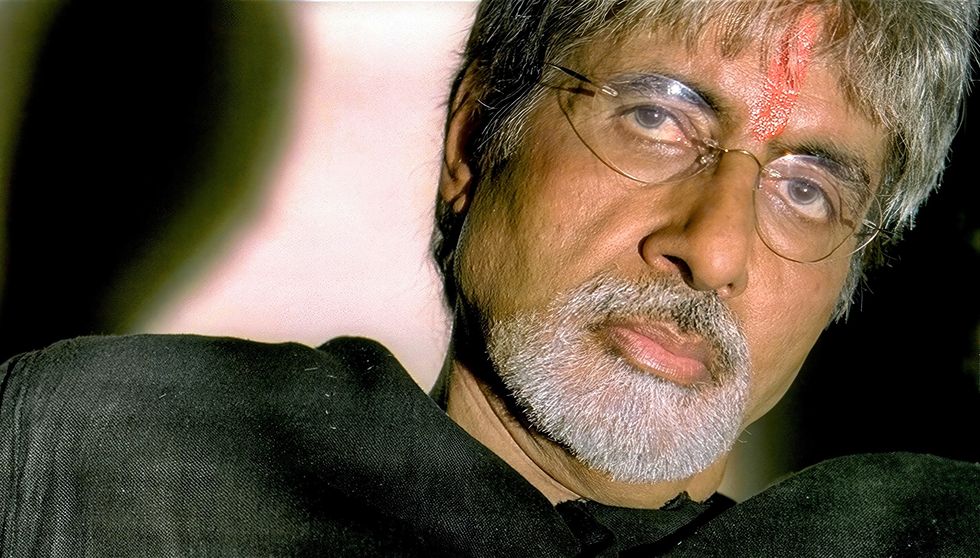 Ram Gopal Varma’s Sarkar marked 20 years of influence and acclaimIMDb
Ram Gopal Varma’s Sarkar marked 20 years of influence and acclaimIMDb
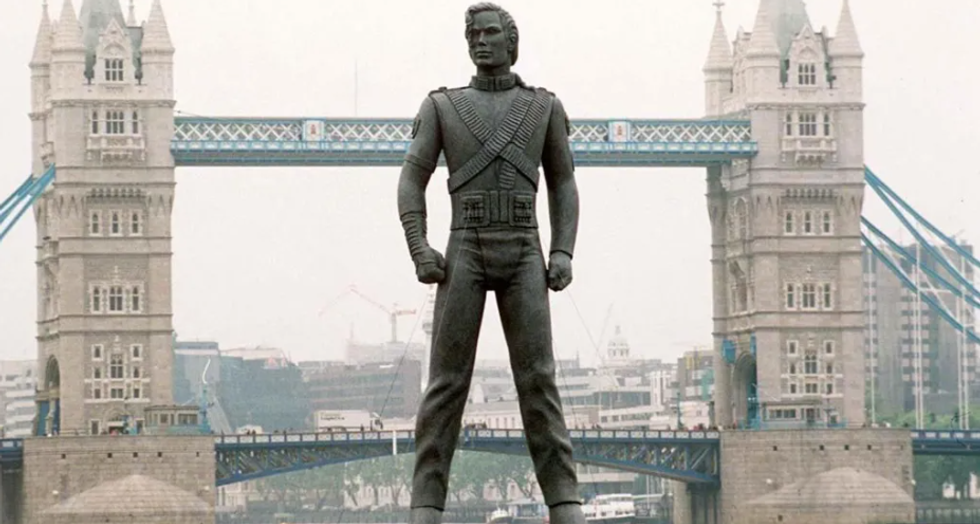 The statues were the product of a transatlantic effortGetty Iamges
The statues were the product of a transatlantic effortGetty Iamges